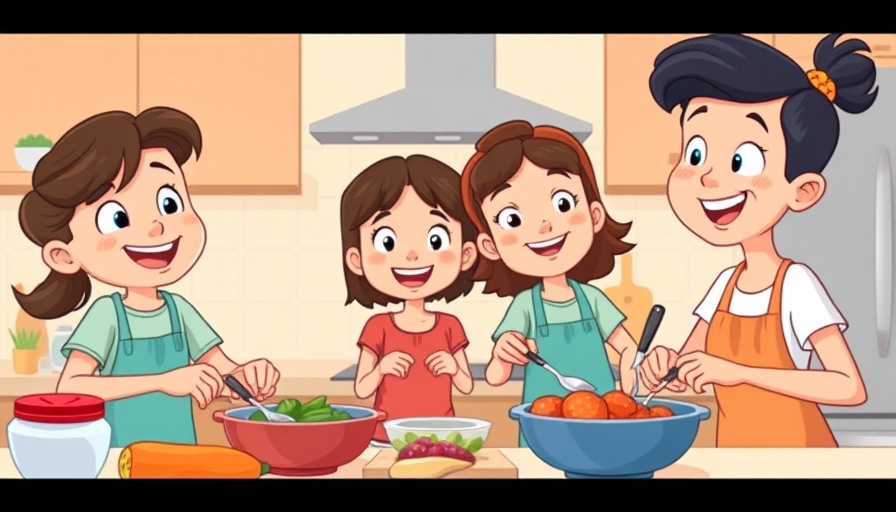
Why Sharing Mealtime Responsibility Can Transform Family Dynamics
Imagine walking into the kitchen to find your kids enthusiastically washing vegetables, selecting ingredients, and even engaged in the cooking itself. This isn't just an idealistic vision; sharing mealtime responsibility can remarkably enhance your family's culinary experience. The benefits of involving children in meal planning and preparation are expansive, leading to healthier eating habits, boosted self-esteem, and improved life skills.
The Confidence Boost: More Than Just Cooking Skills
One of the most profound outcomes of involving children in meal preparation is the significant boost in their confidence. As they participate in tasks ranging from planning to cooking, they experience a sense of accomplishment that builds their self-esteem. This mirrors findings from expert sources like the Michigan State University Extension, which highlights that children feel important and valued when they help in the kitchen. Participating in mealtime tasks allows kids to realize their input matters, fostering independence that crosses over into other aspects of their lives. This confidence not only encourages them to tackle kitchen challenges but also empowers them to approach new tasks in a positive light.
Essential Life Skills: Decision-Making in the Kitchen
Shared mealtime responsibilities also nurture vital decision-making skills. When children assist in selecting ingredients or planning meals, they take ownership of their choices. This practice cultivates critical thinking and problem-solving abilities, skills that extend well beyond the kitchen. The process of evaluating options, making decisions, and dealing with the outcomes enhances their cognitive development and prepares them for more complex challenges in life.
Building Bonds: Family Time in the Kitchen
Cooking together as a family is more than just making food; it's about creating lasting memories. As we stir, chop, and bake together, we share stories, laughter, and even the occasional kitchen mishap. This shared experience is invaluable, as it enhances family bonds while teaching cooperation and teamwork. According to research, like that from Erin Ross at Michigan State University, cooking with kids fosters connections that are rich in memory-making and allow for open conversations that might not happen otherwise.
Encouraging Healthy Eating Habits
A significant benefit of cooking together is that children are more likely to be adventurous eaters when they participate in the preparation process. When kids have spent time helping to create a dish, they are often much more inclined to try it. This can help temper picky eating habits, as kids feel a sense of ownership over their meals, motivating them to explore new flavors and foods.
Fostering Independence and Responsibility
Through shared mealtime responsibilities, children also learn crucial life skills that promote independence. Simple tasks such as washing vegetables or measuring ingredients develop their fine motor skills and enhance their understanding of nutrition. As they progress, these tasks should be age-appropriate and gradually increase in complexity, helping them build competence in a safe environment. Recipes can also teach math through measuring, support literacy through reading, and generate excitement about food preparation.
Your Next Steps: Get Cooking!
If you're ready to make mealtime an interactive family affair, start small. Introduce your children to basic kitchen tasks based on their age. Whether it's stirring, measuring, or deciding on ingredients, each step fosters learning, fun, and connection. Create a fun and lively kitchen atmosphere where exploration is not only welcome but encouraged. Allow for messiness, as it’s part of the learning journey. Remember, the aim is to enjoy the process together while instilling valuable skills.
What Will You Cook Together?
As family mealtimes evolve from mundane to meaningful experiences, you’ll witness your children's confidence soar alongside their cooking skills. Cooking together not only nurtures individual growth but cements family relationships, leading to healthier dynamics—both in the kitchen and beyond. Embrace the power of shared mealtime responsibility, and watch your family transform one recipe at a time.
 Add Row
Add Row 
 Add Element
Add Element 


Write A Comment